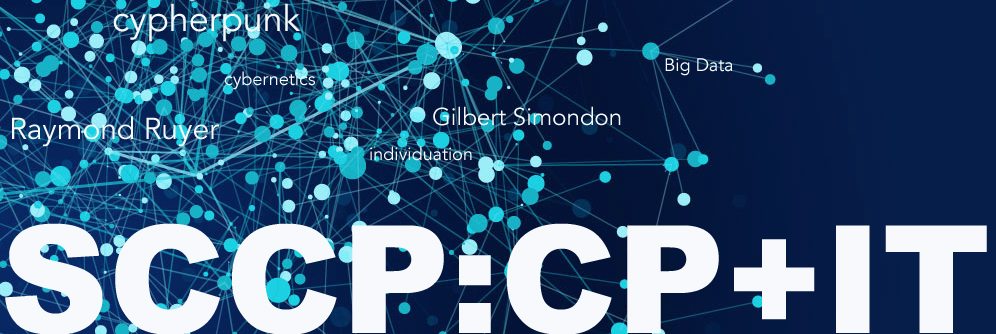SCCP:CP+IT
9:15am-5:30pm, 1st December 2017
Dalhousie Building, Room 2S16,
University of Dundee
This open workshop will bring together scholars engaging with information technologies within the continental philosophical tradition, with the aim of sharing ideas and fostering this emerging area of research. All welcome.
Dull details: https://scot-cont-phil.org/continental-philosophy-and-information-technology-workshop/
